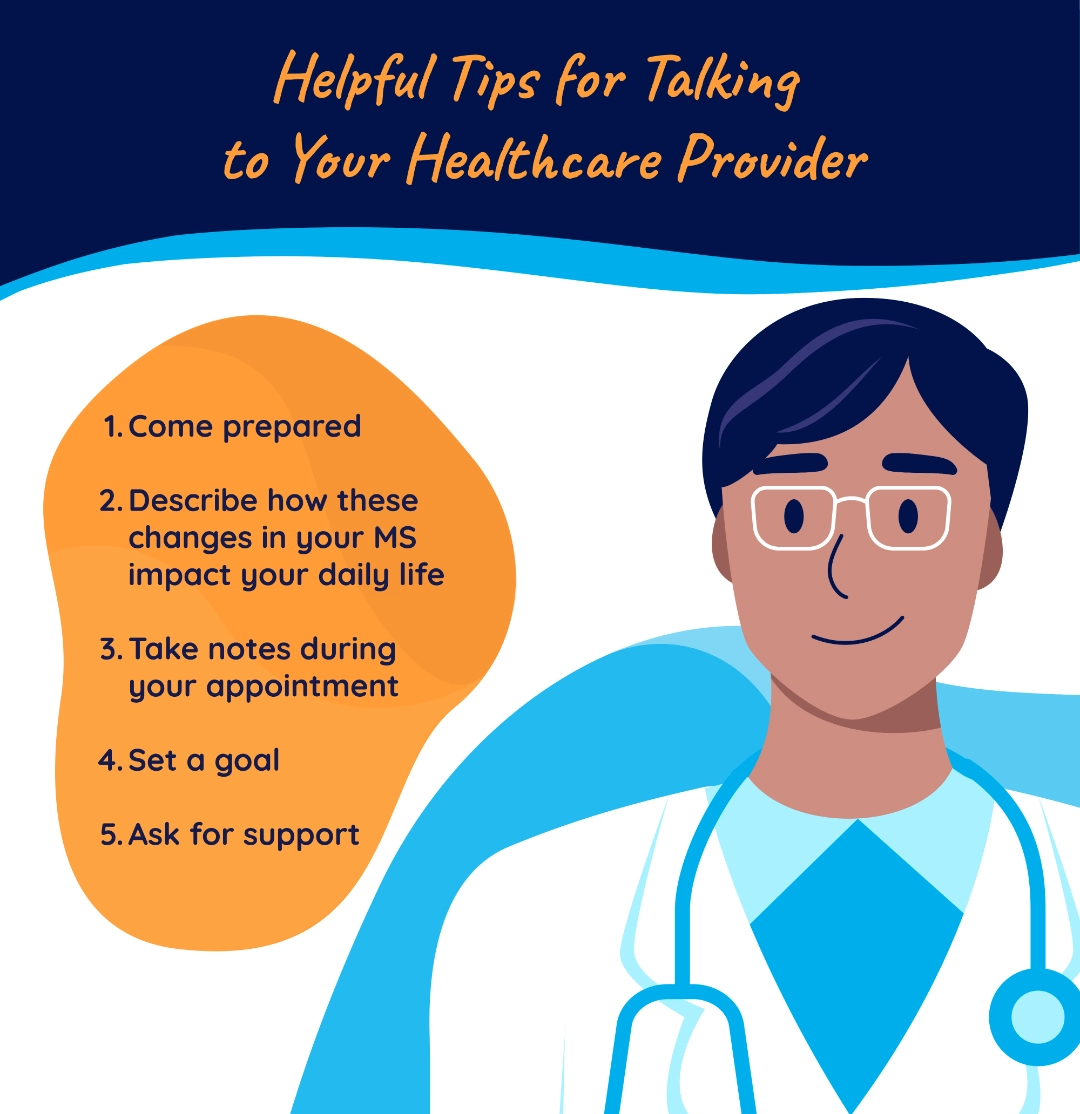- Article
- Source: Campus Sanofi
How to talk to your doctor about your changing MS
Noticing changes in your MS? Talk to your doctor using these 5 tips.
How to Have More Effective Conversations with Your Healthcare Provider
1. Come prepared
One way to do this is to track changes over time. Think back to 6 months ago. What changes did you notice then? What changes do you notice now? Your healthcare provider can’t always see the full picture of your MS in between appointments, so these notes can help them connect the dots on how to best manage your care.
2. Describe how these changes in your MS impact your daily life
At your next appointment, be as specific and direct as possible with your healthcare provider about how changes you notice in your MS affect your life on a day-to-day basis. It can help you and your healthcare provider have a better and more informed conversation on how to manage your MS.
For example:
- Instead of saying you feel tired, explain that you couldn’t get out of bed for 2 days
- Instead of saying you’re experiencing muscle weakness, explain how when you walk your daughter to school every day, you have to rest halfway
3. Take notes during your appointment
Feel free to write down notes during your healthcare appointment—that way, you can focus on the main points of the conversation and ask any clarifying questions. This is something you can keep a record of in a diary, notes app on your phone, or even a voice recording, if your healthcare provider allows it.
4. Set a goal
Set a goal for the conversation. Together, you might want to:
- Better understand if the symptoms you're experiencing are from your MS
- Evaluate if your MS treatment is still meeting your goals
- Discuss the impact of MS on your daily life and better ways to cope with it
5. Ask for support
If you’re comfortable with it, take someone with you to your healthcare appointment. Having a family member, friend, or care partner can be reassuring, and they can speak on your behalf—sometimes others notice changes to your MS symptoms that you don’t. Check out more ways a care partner can lend a hand in your MS treatment journey here.
Communicating your MS symptoms to others effectively allows you to be proactive in your care and meet your MS treatment goals. Even if you haven’t had any recent relapses or MRI activity, clear communication with your healthcare provider may clue them in to the bigger picture of your MS.
Often, the most challenging MS symptoms are the subtle ones that your healthcare provider may not see. This is why it’s best to explain your symptoms to your MS care team in a way that captures your experience. Doing so will ensure that your MS treatment plan is right for you.





